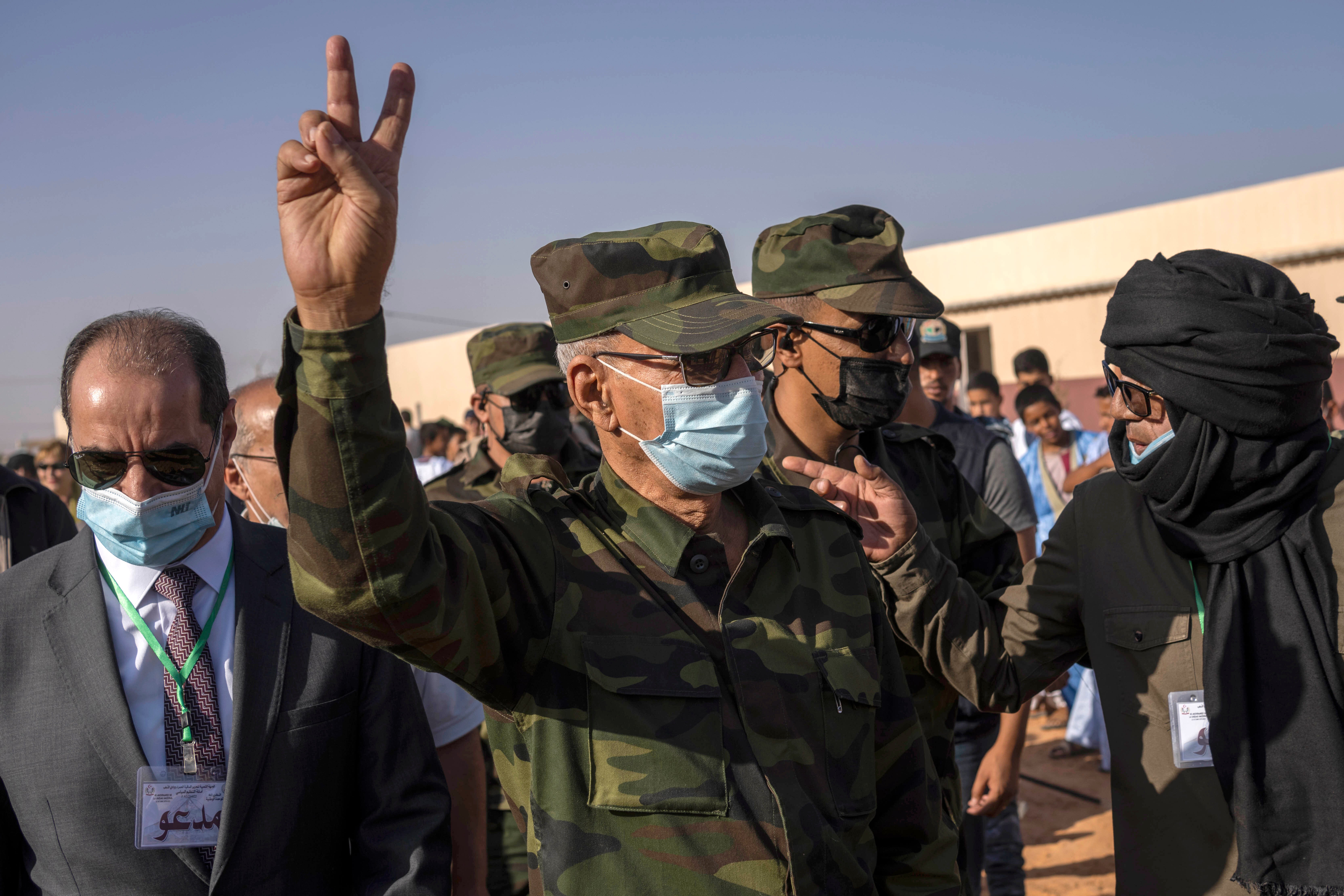Independence leader: Wall won't stop Western Sahara fight
The leader of the Western Sahara independence movement says that fighting with Morocco will continue across a long wall cutting through Africa’s vast desert until the international community delivers on an unfulfilled promise of self-determination for the Saharawi people

Your support helps us to tell the story
From reproductive rights to climate change to Big Tech, The Independent is on the ground when the story is developing. Whether it's investigating the financials of Elon Musk's pro-Trump PAC or producing our latest documentary, 'The A Word', which shines a light on the American women fighting for reproductive rights, we know how important it is to parse out the facts from the messaging.
At such a critical moment in US history, we need reporters on the ground. Your donation allows us to keep sending journalists to speak to both sides of the story.
The Independent is trusted by Americans across the entire political spectrum. And unlike many other quality news outlets, we choose not to lock Americans out of our reporting and analysis with paywalls. We believe quality journalism should be available to everyone, paid for by those who can afford it.
Your support makes all the difference.The leader of the Western Sahara independence movement says that fighting with Morocco will continue across a long wall cutting through Africa’s vast desert until the international community delivers on an unfulfilled promise of self-determination for the Saharawi people.
The United Nations considers Western Sahara as Africa’s last territory to be decolonized, but its envoys have failed to set the stage for a referendum on its future since a ceasefire was signed 30 years ago between Morocco, which had annexed it in 1975, and the independence-seeking Polisario Front
The conflict has received renewed attention due to growing frustration among the Saharawi people, but also after the United States last year disregarded the U.N. efforts by backing Morocco’s claim to sovereignty over the entire disputed territory.
U.N. Secretary General Antonio Guterres has recently appointed a new special envoy to Western Sahara, Staffan De Mistura.
In a rare public appearance following a long convalescence for COVID-19 this year, Polisario Front leader Brahim Ghali on Tuesday defended his movement’s decision in November 2020 to call off the 1991 ceasefire.
“There will be neither peace, nor stability, nor a just and lasting solution to the Moroccan-Saharawi conflict unless the U.N. Security Council assumes its responsibilities in responding frankly and firmly to the aggressive and expansionist practices of the Moroccan occupying power,” Ghali said in a speech to hundreds of Saharawis at the Dajla refugee camp in Algeria’s southern Tindouf province.
Hostilities have remained at a relatively small scale, although Polisario officials told The Associated Press that at least 8 of their fighters have died in combat or retreating from attacks launched on Moroccan army positions along the wall.
But the conflict could escalate and destabilize the entire North Africa region, Ghali said.
“The war is already raging on the ground. And its dangers and repercussions on the region cannot be avoided if the United Nations continues to manage the crisis instead of solving it,” Ghali said.
Algeria has sheltered Saharawi refugees since Morocco annexed their homeland. But now the Saharawi who did not flee have become a minority in the Moroccan-controlled part of Western Sahara, due to policies that encourage Moroccan settlers to come live there.
With a heavy security entail, Ghali was in Dajla to mark the day of Saharawi unity, which remembers the date when major senior Saharawi tribal leaders and former members of Spain’s colonial administration backed the Polisario’s struggle for an independent state.
In their constant search for allies, both Morocco and the Polisario have sought to win diplomatic battles in the U.N. and with other stakeholders. The Biden administration has not carried out actions to make effective on the ground the recognition of Morocco’s sovereignty that Trump announced in a tweet at the end of his mandate.
Meanwhile in Europe, a top European Union court recently sided with the Polisario in recognizing that Morocco should not be considered the legitimate party for the bloc to sign fishing and agricultural agreements with pertaining to Western Sahara.
In his speech Tuesday, Ghali accused “countries, companies or others” doing business with Morocco in the disputed territory of supporting “an illegal, aggressive and expansionist operation, and the theft and looting of the wealth of an oppressed and defenseless people.”
Ghali was hospitalized in Spain in April, a move that the Spanish government tried to keep secret but that angered the Moroccan government in Rabat. Shortly after the news came out, over 10,000 Moroccans flooded across the Spanish border, triggering a humanitarian crisis that sent relations between Madrid and Rabat to a decades-long low.